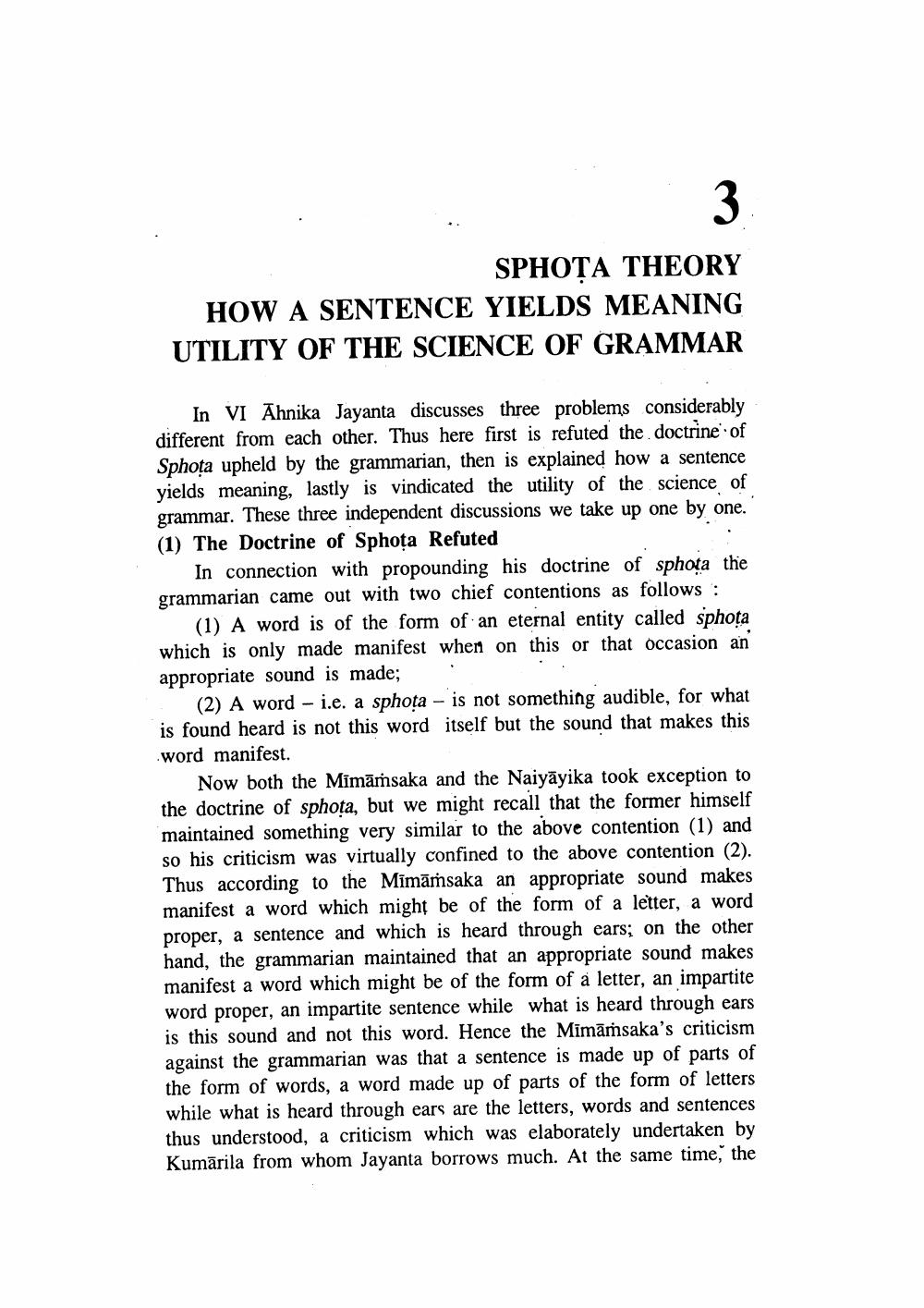________________
SPHOTA THEORY HOW A SENTENCE YIELDS MEANING UTILITY OF THE SCIENCE OF GRAMMAR
In VI Ähnika Jayanta discusses three problems considerably different from each other. Thus here first is refuted the doctrine of Sphota upheld by the grammarian, then is explained how a sentence yields meaning, lastly is vindicated the utility of the science of grammar. These three independent discussions we take up one by one. (1) The Doctrine of Sphoța Refuted
In connection with propounding his doctrine of sphota the grammarian came out with two chief contentions as follows :
(1) A word is of the form of an eternal entity called sphota which is only made manifest when on this or that occasion an appropriate sound is made;
(2) A word - i.e. a sphota - is not something audible, for what is found heard is not this word itself but the sound that makes this word manifest.
Now both the Mīmāṁsaka and the Naiyāyika took exception to the doctrine of sphota, but we might recall that the former himself maintained something very similar to the above contention (1) and so his criticism was virtually confined to the above contention (2). Thus according to the Mimāṁsaka an appropriate sound makes manifest a word which might be of the form of a letter, a word proper, a sentence and which is heard through ears; on the other hand, the grammarian maintained that an appropriate sound makes manifest a word which might be of the form of a letter, an impartite word proper, an impartite sentence while what is heard through ears is this sound and not this word. Hence the Mimāṁsaka's criticism against the grammarian was that a sentence is made up of parts of the form of words, a word made up of parts of the form of letters while what is heard through ears are the letters, words and sentences thus understood, a criticism which was elaborately undertaken by Kumārila from whom Jayanta borrows much. At the same time, the




